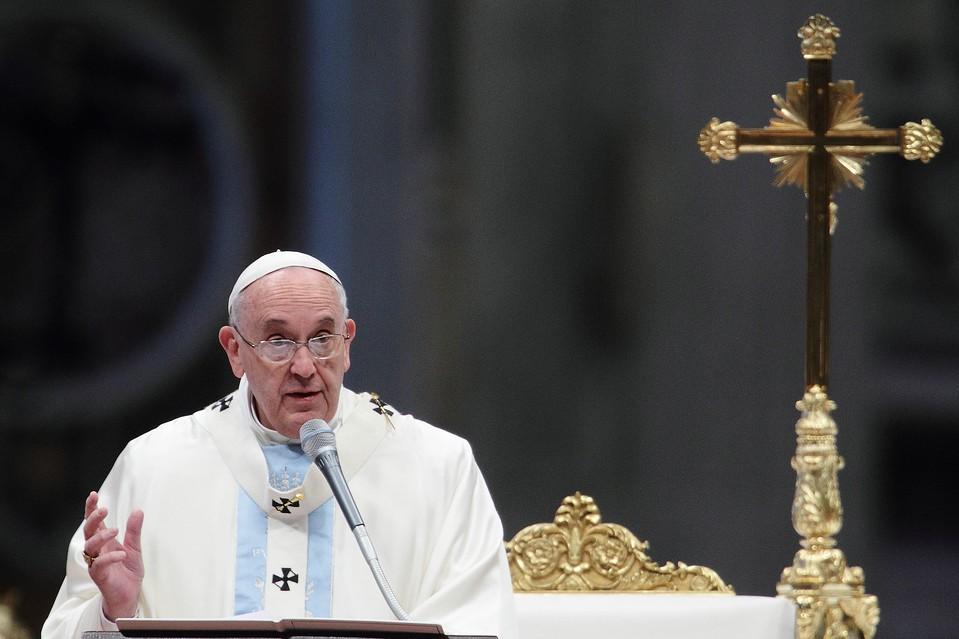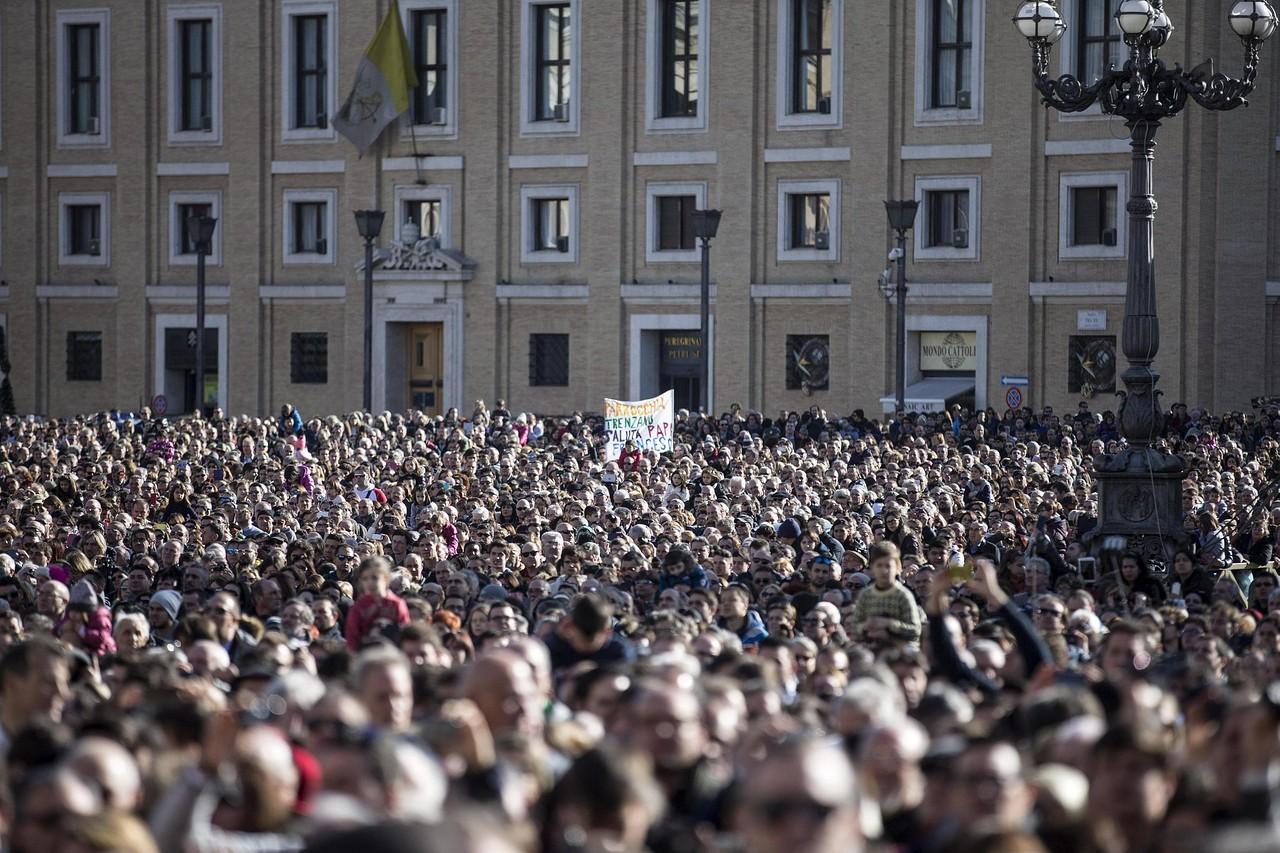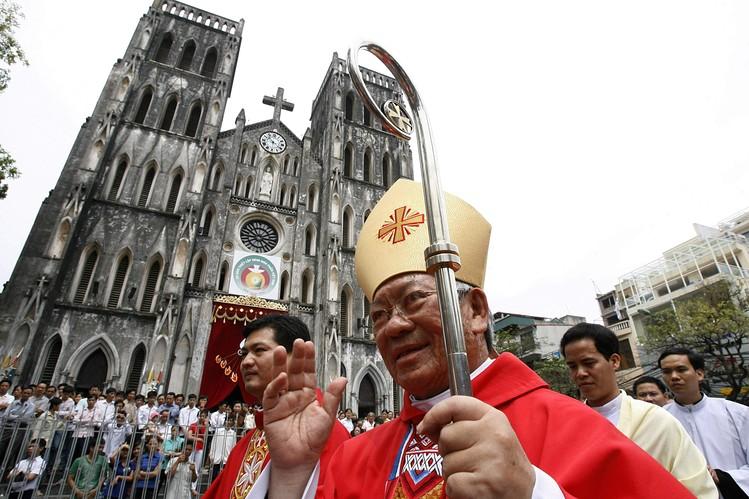|
Pope Francis Names 15 New Cardinals
By Deborah Ball
ROME— Pope Francis nominated 15 new members of the College of Cardinals on Sunday, with the majority hailing from small, developing countries such as Cape Verde, Myanmar and Tonga. The choices by the Argentine-born pontiff reflect his efforts to rebalance a College of Cardinals toward the developing world, where Catholicism is growing faster than in Europe and the U.S. The names also demonstrate the pope’s support for prelates with pastoral experience in smaller dioceses and for those coping with violence, migration and poverty. Nine of the new cardinals are from the emerging world, including Myanmar, Vietnam and Panama. The new batch represents 14 countries in total: five are from Europe, three each from Asia and Latin America, and two each from Africa and Oceania. The 15 men are all under the age of 80, which makes them eligible to vote in a conclave to elect a future pope. The group of cardinals is the second appointed by Pope Francis, who will have chosen nearly a quarter of voting-age cardinals once they are elevated during a ceremony at St. Peter’s Basilica in the Vatican on Feb. 14. The pope chose just two new cardinals for Italy—which is strongly overrepresented in the College of Cardinals—but picked Ancona and Agrigento, two small dioceses, snubbing cities such as Venice that traditionally have had a red hat. Moreover, one of the two men is Msgr. Francesco Montenegro, the archbishop of the Sicilian town of Agrigento, and head of the Italian bishops’ group that deals with migration. The plight of migrants has been a major concern of the pope, whose first trip after becoming pontiff in March 2013 was to the Sicilian island of Lampedusa, which has seen a flood of seaborne migrants arrive from Africa in recent years. Pope Francis elevated just one member of the Curia, the Vatican’s Roman bureaucracy, but chose a Moroccan-born French prelate, Msgr. Dominique Mamberti, who heads the Apostolic Signatura, the Vatican’s highest court. About a quarter of voting-age cardinals now come from the Curia. Pope Francis is in the midst of a sweeping reform of the bloated bureaucracy of the Curia, which has been involved in repeated scandals in recent years. The pontiff, who sharply rebuked the Curia in a Christmas address, accusing some clerics of “spiritual Alzheimer’s,” will preside over a major meeting of cardinals on Feb. 12-13 to discuss his coming overhaul of the Vatican hierarchy. Last February, Pope Francis named 19 new cardinals, many also from the developing world. The choice of cardinals is among the most important tasks of a pope. In addition to choosing a new pontiff, the cardinals lead influential dioceses around the world and serve as the heads of key Vatican departments. New cardinals are named when existing ones turn 80 and lose their eligibility to vote in a papal election. By the time of next month’s elevation ceremony, or consistory, there will be 10 vacancies, with two cardinals turning 80 soon afterward. Under rules set by Pope Paul VI, the College of Cardinals Electors should have a maximum of 120 voting-age members. But popes have in the past broken the rules, as did St. John Paul II several times during his papacy. Some observers wondered whether the pope would nominate a particularly large batch in an attempt to gain support for a series of reforms he has proposed. He has also faced open opposition from more tradition-minded church leaders who dislike his support for ideas such as a new approach to divorced and homosexual Catholics. Instead, the pope raised the number of voting-age cardinals to 125, only slightly over the traditional limit of 120. Pope Francis is seeking to bolster the representation of the emerging world in the College of Cardinals to reflect the greater growth of Catholicism in Africa, Latin America and parts of Asia. However, even after the new nominees are elevated, Europe, home to 24% of the world’s Catholics, will still have 57 cardinals, while the U.S. and Canada, which have about 8% of Catholics, will have 15. By contrast, Latin America, which has nearly 40% of Catholics and where the ranks of the faithful are growing, will have 21 cardinals, or less than a fifth of voting-age cardinals. For the second time, the pope chose no new American cardinals. And his nominees in the rich world reflect his preference to focus on smaller cities. For instance, he chose Msgr. Ricardo Blazquez Perez, archbishop of Valladolid, Spain. The pontiff chose cardinals in a number of cities such as David, Panama, and Morelia, Mexico, that haven’t had cardinals in the past. He also chose places where the Catholic community is a minority and areas, such as Morelia, which are afflicted by violence. One of the pope’s nominees was Msgr. Pierre Nguyen Van Nhon in Hanoi, Vietnam. The Southeast Asian nation has a small but vibrant Catholic community and is one of the few countries with which the Holy See doesn’t have diplomatic relations. However, relations have warmed notably in recent years and some expect full ties to be restored in the near future. He also nominated Msgr. Francis Xavier Kriengsak Kovithavanij in Bangkok and Msgr. Charles Maung Bo in Myanmar. The youngest nominee is Msgr. Soane Patita Paini Mafi, the 53-year-old bishop of Tonga. Others include Msgr. Berhaneyesus Demerew Souraphiel of Addis Ababa, Ethiopia, and Msgr. Daniel Fernando Sturla Berhouet of Montevideo. In Cape Verde, Santiago de Cabo Vede—one of Africa’s oldest Catholic dioceses—will receive its first cardinalship when the pope elevates Msgr. Arlindo Gomes Furtado next month. The pontiff also nominated five cardinals emeriti, who won’t have the power to vote in a conclave. Such nominations are honorary. Contact: deborah.ball@wsj.com
|
.
Any original material on these pages is copyright © BishopAccountability.org 2004. Reproduce freely with attribution.



